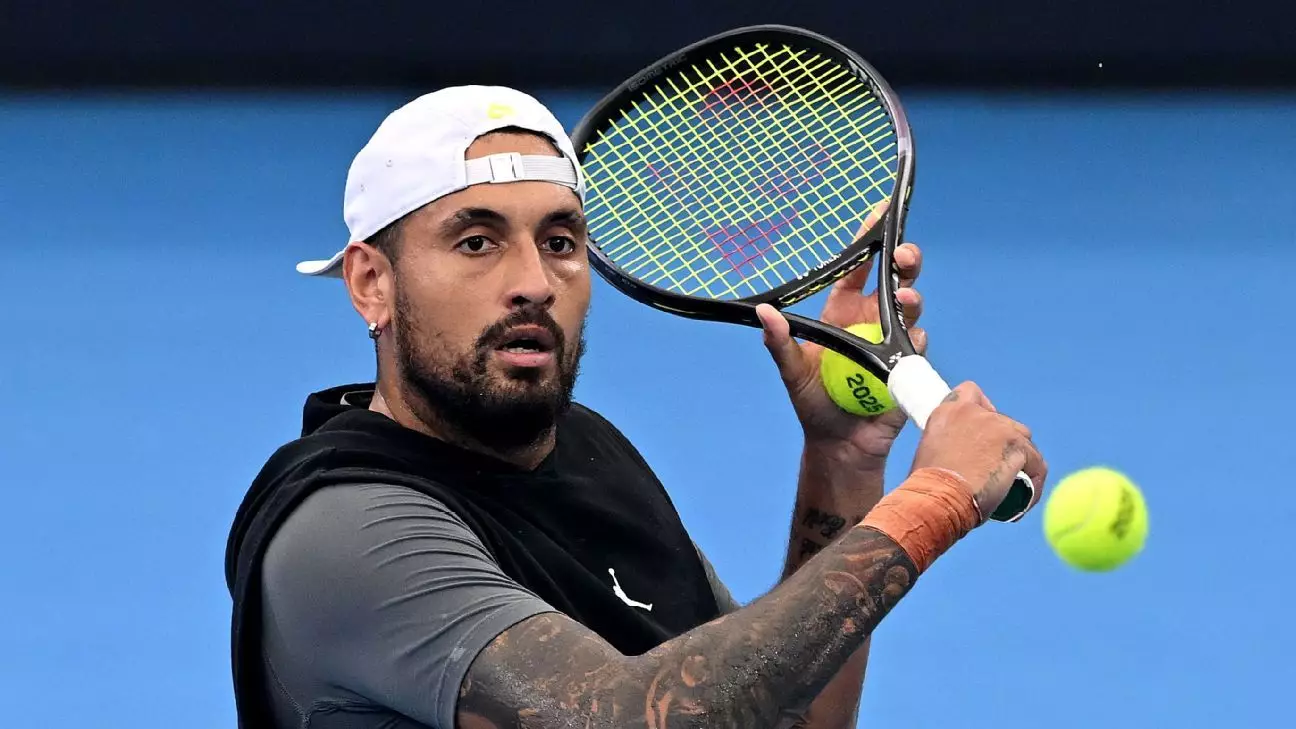Tennis has often been celebrated for its rich history and sportsmanship, yet recent controversies surrounding doping violations have cast a shadow over the sport’s integrity. Australian tennis player Nick Kyrgios has been vocal regarding these issues, particularly targeting esteemed colleagues Jannik Sinner and Iga Swiatek. These allegations, brought forth by the International Tennis Integrity Agency (ITIA), have raised crucial questions about fair play and accountability among elite athletes. Kyrgios’s remarks were not merely reactionary; they indicate a growing concern within the sport regarding doping and its implications for athletes committed to integrity and skill.
Kyrgios, who has taken time off competitive play due to injuries, systematically articulated his disappointment, stating that the reported cases of doping by two world No. 1 players are detrimental to the sport. His assertion that “two world No. 1s both getting done for doping is disgusting” resonates deeply with both fans and upcoming players who look up to these figures as role models. Kyrgios captures the essence of disappointment felt by many as both Sinner and Swiatek managing to evade severe repercussions undermines the credibility of tennis’s anti-doping efforts. The contrasting experiences of athletes, particularly those who are transparent in their struggles, bring to the surface ethical dilemmas that the sport continues to grapple with.
While Sinner successfully argued his innocence, maintaining that contamination occurred through an unknowing accident involving his physiotherapist, Kyrgios raised serious questions about the systemic processes that permitted such incidents to shake the sport. The growing complexity of exacerbating health situations, athlete rehabilitation, and strict anti-doping regulations challenge players, managers, and therapists alike. Kyrgios highlights a travesty: “I pay my team hundreds and thousands of dollars… Why did they wait five to six months to do anything about it?” Such questions cannot be merely brushed aside—this systemic issue is where accountability must be scrutinized to ensure athletes’ careers are not jeopardized by lapses in professional duties and standards.
Kyrgios’s insights go beyond contracts and performance; they broach the emotional aspect of being an athlete. “I can get emotional, I can throw a racquet, but that’s nothing compared to cheating,” he stated, indicating a profound value for authenticity in sports. The intensity of competition brings forth various emotional responses, and Kyrgios’s unfiltered honesty illustrates his deep commitment to the spirit of the game. The athlete’s bond with their sport should inherently stem from respect and integrity rather than shortcuts to success. The stigma around performance-enhancing drug use disproportionately affects athletes who value hard work and the dedication it requires to reach the top.
Kyrgios appeals not just to his peers but also to the tennis community—fans, officials, and aspiring players alike—to instill a culture of honesty. He suggests a necessary cultural shift where athletes feel empowered to denounce violations without fear of backlash. His assertion, “I have to be outspoken about it because I don’t think there is enough people that are speaking about it…” underscores the urgency for a collective effort driven by honesty and integrity. If influential figures remain silent in light of wrongdoing, they inadvertently perpetuate an environment where ethics can easily slide into obsolescence.
As tennis evolves, players like Kyrgios challenge the status quo and advocate for honesty, transparency, and a strong ethical compass. While Sinner and Swiatek may navigate their controversies, the overarching need for integrity in sports must remain a priority. The sport’s future hangs on a delicate balance: maintaining rigorous anti-doping policies while fostering an environment of trust and unity amongst athletes. Ultimately, it is the responsibility of every stakeholder within tennis to ensure that the game remains a true contest of skill, hard work, and dedication rather than a battleground for substandard practices.

